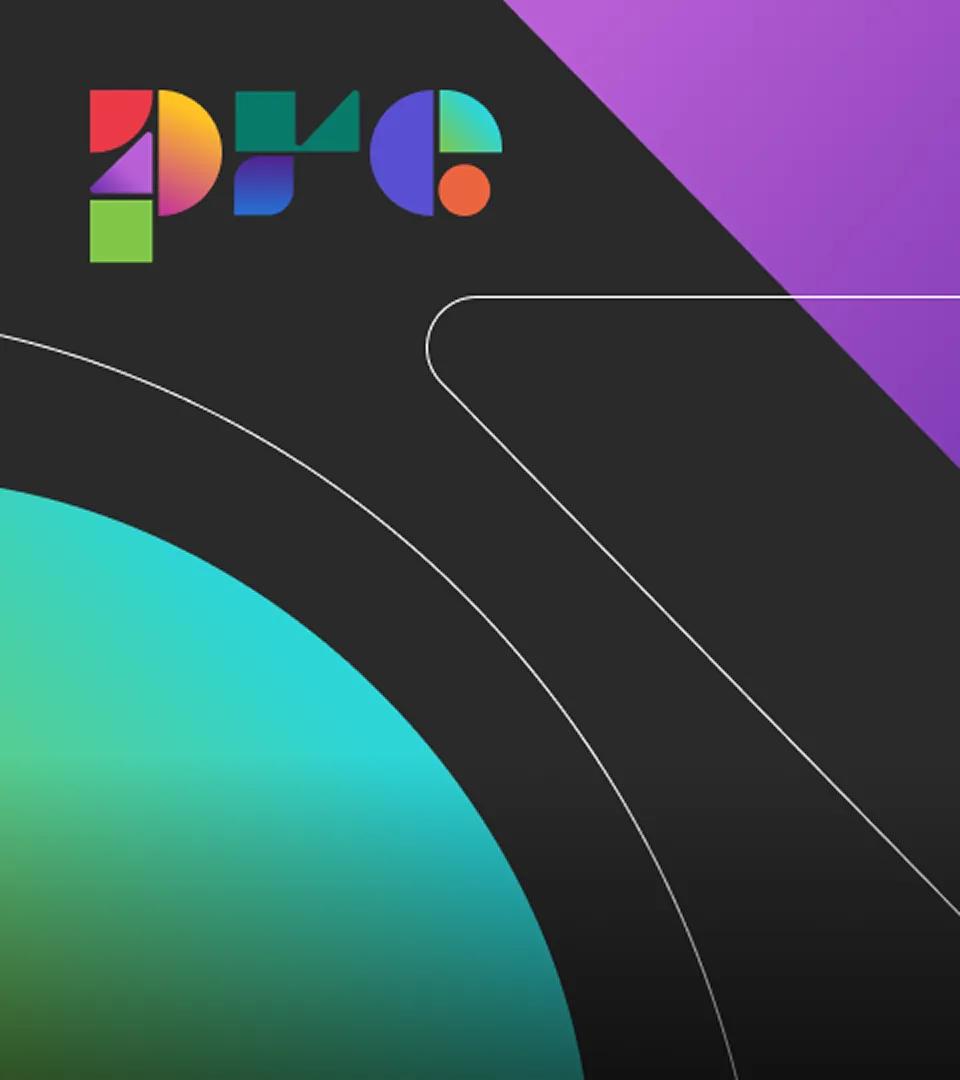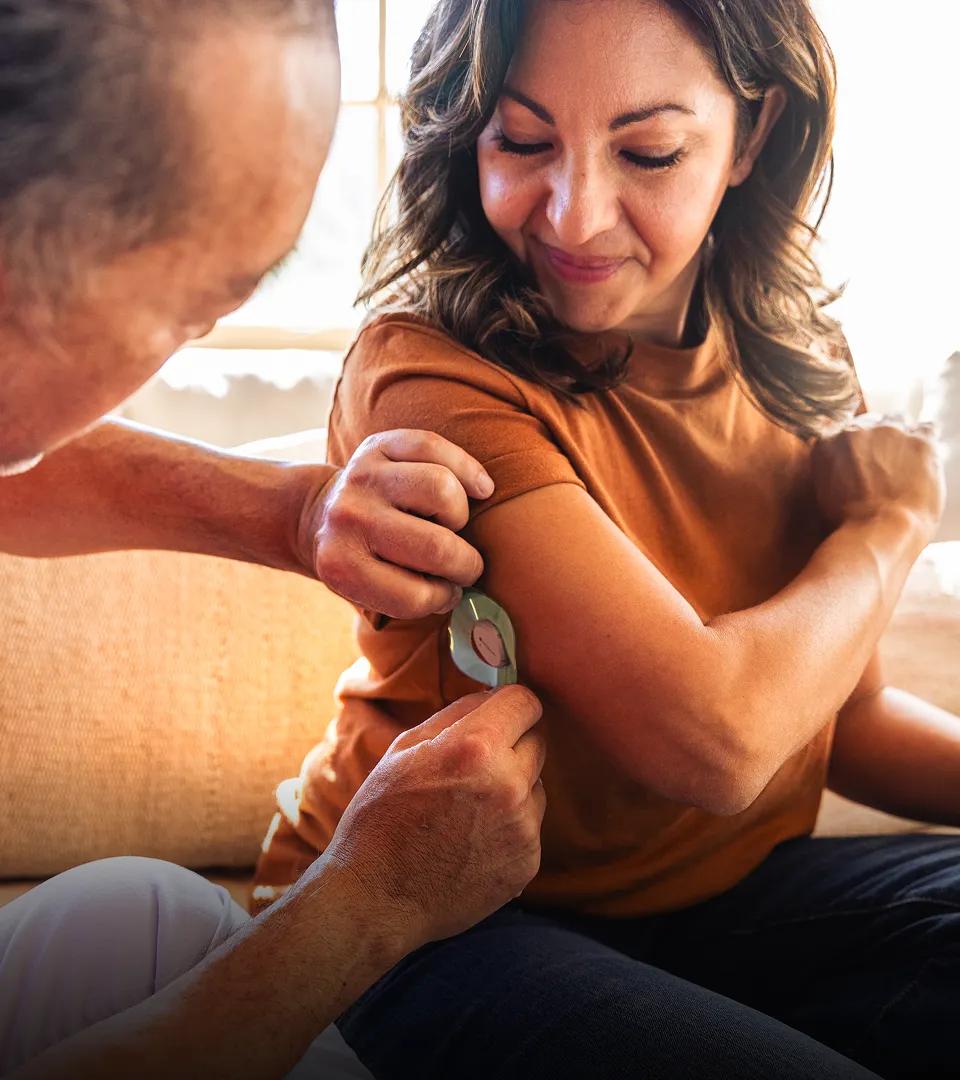Survey: What do consumers want from their health technology?

Three quarters of respondents would like an app that provides personalized health recommendations from a healthcare professional and helps them better understand their health over time.
The digital health landscape is rapidly evolving, with a growing number of Americans actively engaging with technology to access care and manage their well-being. From fitness trackers to online patient portals, digital solutions are now integral to how individuals monitor their health and interact with healthcare providers. This proliferation of tools, while offering unprecedented access, also presents challenges related to data fragmentation, siloed care, and user experience.
To better understand how Americans are currently using health technology and where opportunities lie for new, more effective solutions, Verily partnered with The Harris Poll to conduct the "Consumer Survey on Personal Health Technology." This online survey was administered to 2,000 U.S. adults aged 18 or over, all of whom own a smartphone and make a majority of their healthcare decisions, between July 11 and July 22, 2025. The results underscore a significant need for integrated health solutions that provide more personalized recommendations from care providers and empower users with greater control and understanding of their health data.
Given Verily’s commitment to offering solutions that make healthcare more predictive, preventive, and precise, we wanted to understand consumers' preferences and needs when it comes to their health technology.
Vindell Washington, MD, MS, Chief Clinical Officer
Here are the key findings:
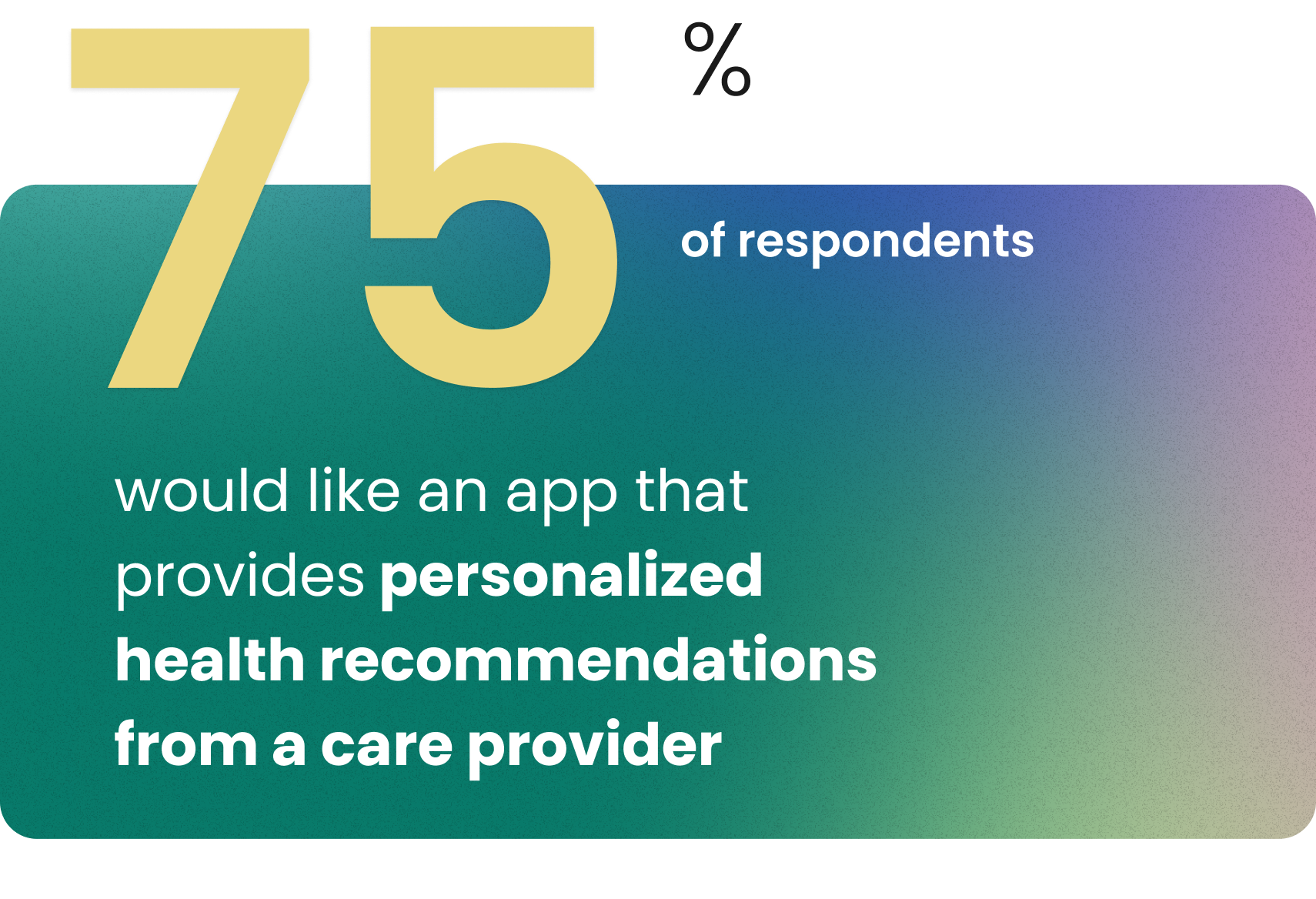
Americans’ health management needs are complex.
The majority of survey respondents consider themselves healthy, but the picture is more complex. The data shows that ongoing health conditions and use of long-term medications are common.
- While 78% percent of respondents consider themselves to be in good or excellent health, 54% are also concerned about their health.
- 76% are currently living with or managing at least one health condition.
- For those with health conditions, 84% take medication(s).
- Those currently taking medications are, on average, taking one over the counter medication and two prescription medications.
Multiple healthcare providers and portals make care more complicated.
The reality of seeing multiple healthcare care providers, coupled with the proliferation of disparate patient portals, directly contributes to siloed data. This fragmentation makes it challenging for both patients and providers to access and share critical health information, ultimately leading to a disjointed experience.
- Survey respondents see an average of 2.5 healthcare providers on a regular basis.
- Nearly three in four (73%) respondents reported using at least one online patient portal, with more than one in three (36%) using multiple platforms across different healthcare providers. This highlights a pervasive, yet often fragmented, engagement with digital health records across care teams.
- 69% of respondents indicated they are interested in being able to more easily provide their health app and/or wearable data along with their health records to their healthcare providers.
Individuals want clear, personalized health insights they can trust.
While today, health care treatment and digital health technologies are often disconnected experiences, consumers showed a strong interest in apps that can help bridge the gap by providing recommendations from care providers and personalized information to help them manage their health needs.
- Three quarters of respondents indicated they would like an app that helps them better understand their health over time (76%) and would like to receive personalized health recommendations from a healthcare professional (75%). This signals a move beyond simple data tracking towards a desire for actionable insights tailored to individual needs.
Most Americans use digital solutions to access and manage health data, but there is room for improvement.
The survey findings reveal a widespread adoption of digital health tools:
- A substantial 60% of respondents like to stay up to date and actively seek out new health tools and resources (including apps and programs), indicating a strong desire to stay informed and proactive about their health.
- Nearly half (47%) of respondents use a health wearable. Among these users, more than 9 out of 10 (94%) express satisfaction with the ease of use of their current health app(s). This indicates a high level of usability for individual tools, yet this satisfaction often doesn't extend to the broader digital health ecosystem.
However, a notable frustration emerged for those using digital health apps:
- 64% of individuals cited frustrations with their current health apps and a lack of integration with other digital health tools as their biggest complaint with these apps. This underscores a critical gap in the current market – while individual solutions may be user-friendly, their inability to connect and share data creates a disjointed experience.
Americans are eager for personalized, integrated health technology.
The survey showed a strong interest and readiness among consumers to embrace health technology solutions that offer comprehensive insights and control.
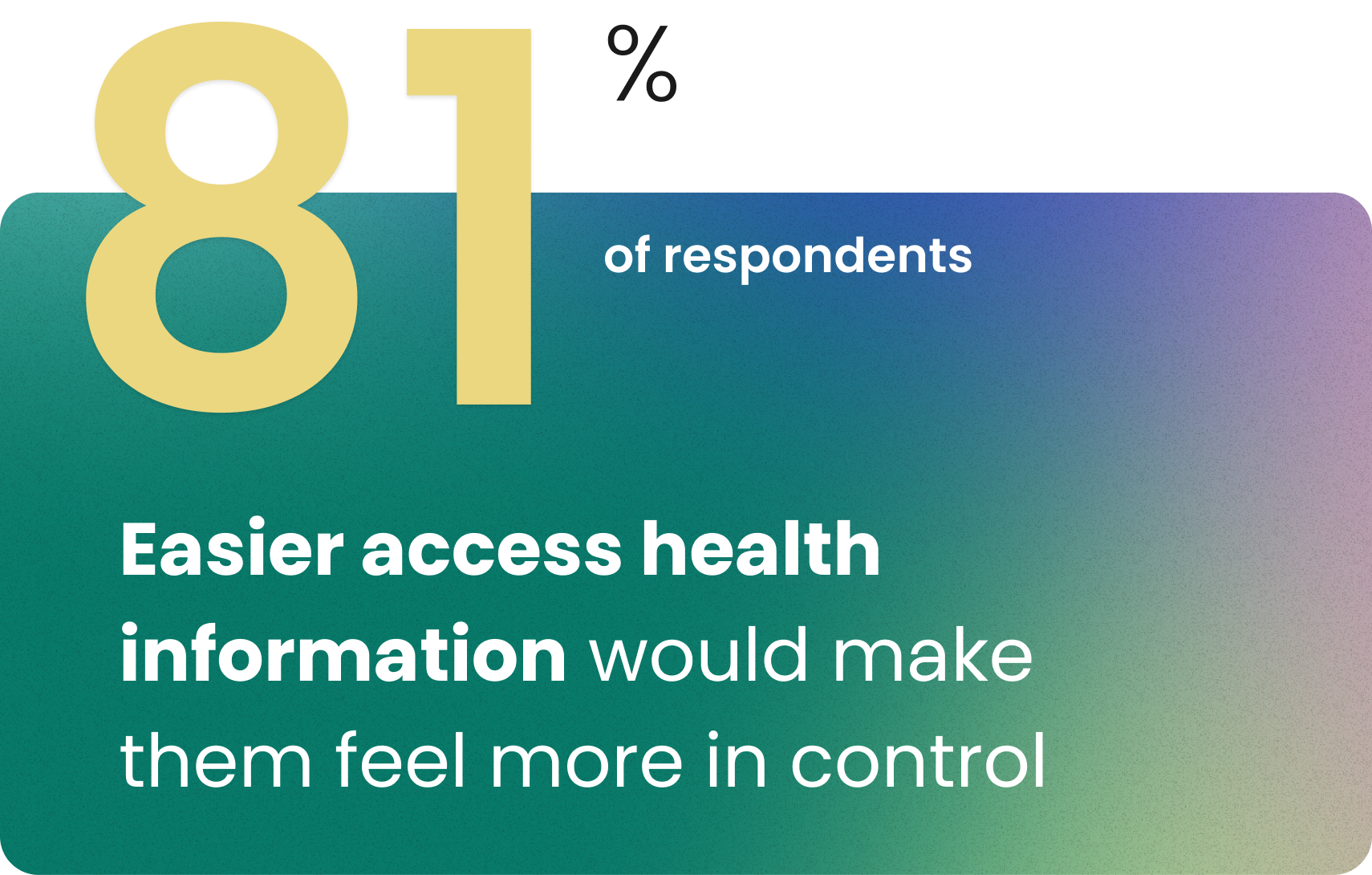
- 81% of respondents believe that easier access to their health information would make them feel more in control of their health. This desire for agency is a driving force behind the demand for better integrated solutions.
- Eight out of ten Americans (82%) expressed a wish to access all their health information in one place, reinforcing the issue of fragmented data. The fact that more than a third (36%) of respondents use multiple platforms across various doctors further illustrates this challenge.
- Nearly 3 out of 4 (73%) want more control over storing and sharing their health information, rather than being reliant on their healthcare provider's portal systems.
- 84% of wearable device or health app users believe it would be beneficial to view their wearable data alongside their electronic health record information.
- 72% are actively seeking information about healthy nutrition and lifestyle options.
Current health technology applications often miss the mark.
Despite the high adoption rates and clear demand, existing health technology solutions frequently fall short due to a range of issues, from privacy concerns to fragmented data and unclear insights.
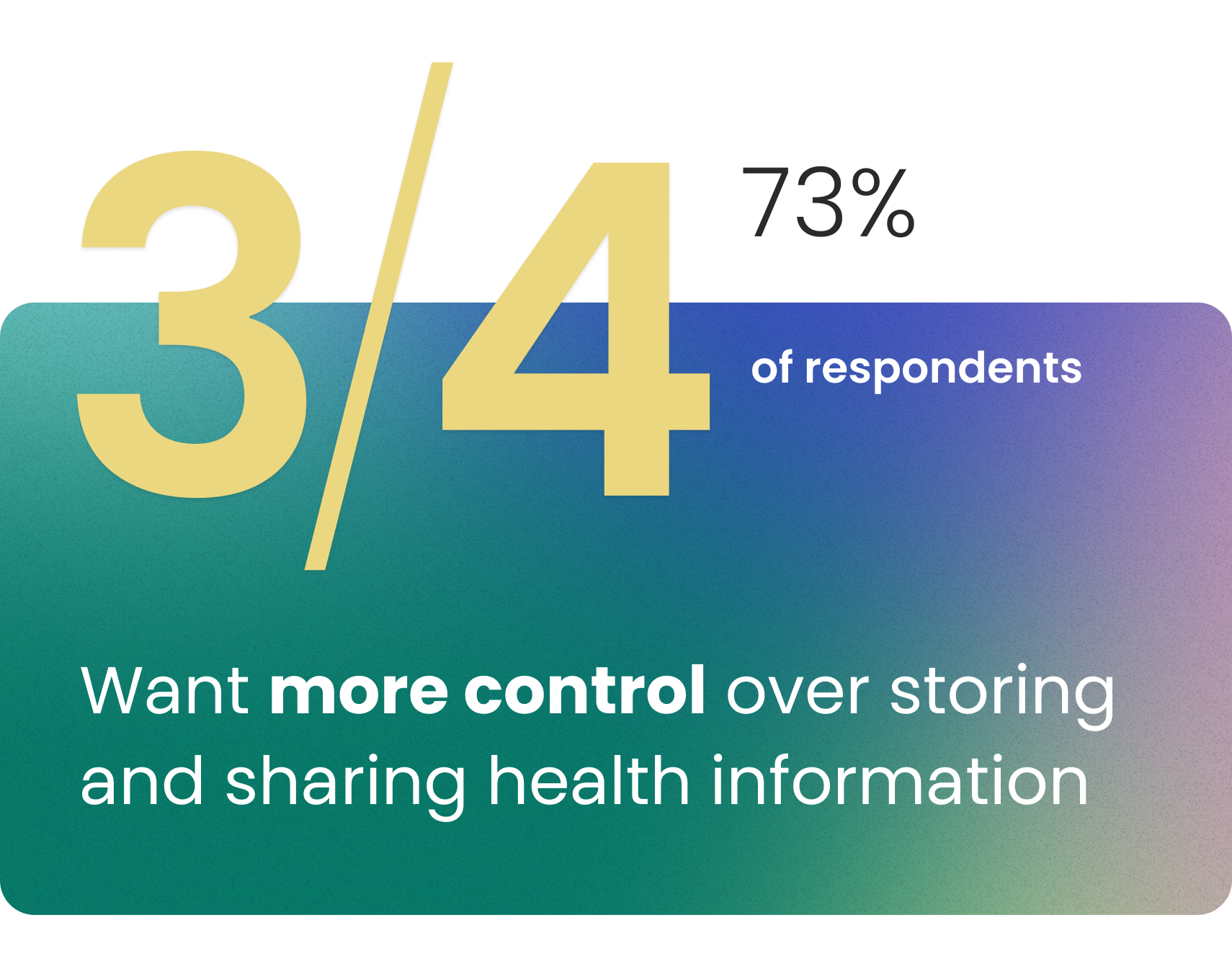
- Overall, 64% of those who currently use health apps found aspects of their app(s) frustrating. Among these, 28% specifically cited a lack of integration across health apps, and 28% pointed to inaccurate metrics or information as key limitations.
- 59% of survey respondents find it challenging to navigate health records because they are not consolidated into one place, and 53% worry that this may result in poor health outcomes.
- The issue of multiple platforms creates considerable user friction, with 62% of online portal users experiencing issues such as forgotten passwords and 41% feeling overwhelmed by the number of portals their providers ask them to use.
- Despite the fact that most respondents (78%) consider regulations like HIPAA to be adequate to protect their health information, a substantial 68% remain concerned about the privacy of their personal health information. This apparent contradiction highlights a need for greater transparency and trust-building within digital health platforms.
Those with cardiometabolic conditions have unique needs.
The demand for personalized and trustworthy insights is particularly pronounced among those with chronic cardiometabolic conditions, such as heart disease, diabetes, and obesity, who often have more complex health needs:
- 37% of survey respondents reported having at least one cardiometabolic condition.
- Individuals with cardiometabolic conditions are more likely than those without to use more than one online patient portal (45% vs. 31%), indicating a higher necessity for accessing diverse health data.
- Unsurprisingly, those with cardiometabolic conditions are more likely than those without one to express frustrations with their current health apps (71% vs. 60%), underscoring the critical need for solutions that truly meet their complex health management requirements.
The "Consumer Survey on Personal Health Technology" clearly identifies a significant opportunity and a strong demand for personalized solutions that empower individuals to access recommendations from a care provider and navigate their everyday health with confidence.
The path forward: personalized and integrated solutions
The "Consumer Survey on Personal Health Technology" clearly identifies a significant opportunity and a strong demand for personalized solutions that empower individuals to access recommendations from a care provider and navigate their everyday health with confidence. The current landscape, characterized by fragmented data, integration challenges, and lingering privacy concerns, does not fully meet the needs of a digitally engaged population.
The survey results highlight several key points:
- Consumers desire greater control and engagement with their healthcare, but feel limited by the fragmented systems currently in place.
- Current health tools often lack the necessary integration and accuracy, and despite many Americans sharing personal health information through search queries and general AI tools, concerns about privacy and security persist within dedicated health platforms.
- While people are invested in their personal health and actively use digital tools, existing solutions are not delivering the comprehensive and personalized insights they need.
- Almost half of respondents use a wearable, yet their biggest frustration is the lack of seamless integration with other digital health tools.
For individuals, especially those managing chronic cardiometabolic conditions, streamlining their digital health experience and reducing frustrations can make a profound difference in their ability to take control of their health.
The demand is clear: Americans are ready for integrated, accurate, and personalized health technology that empowers them to make informed decisions about their well-being and simplifies access to their data. The future of digital health lies in solutions that bridge the current gaps, providing a holistic and trustworthy view of an individual's health journey.
